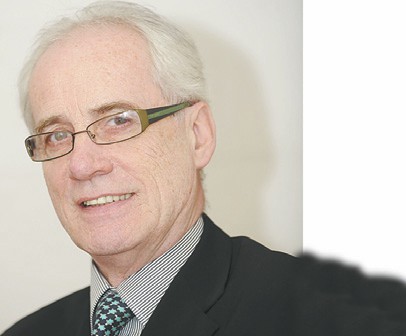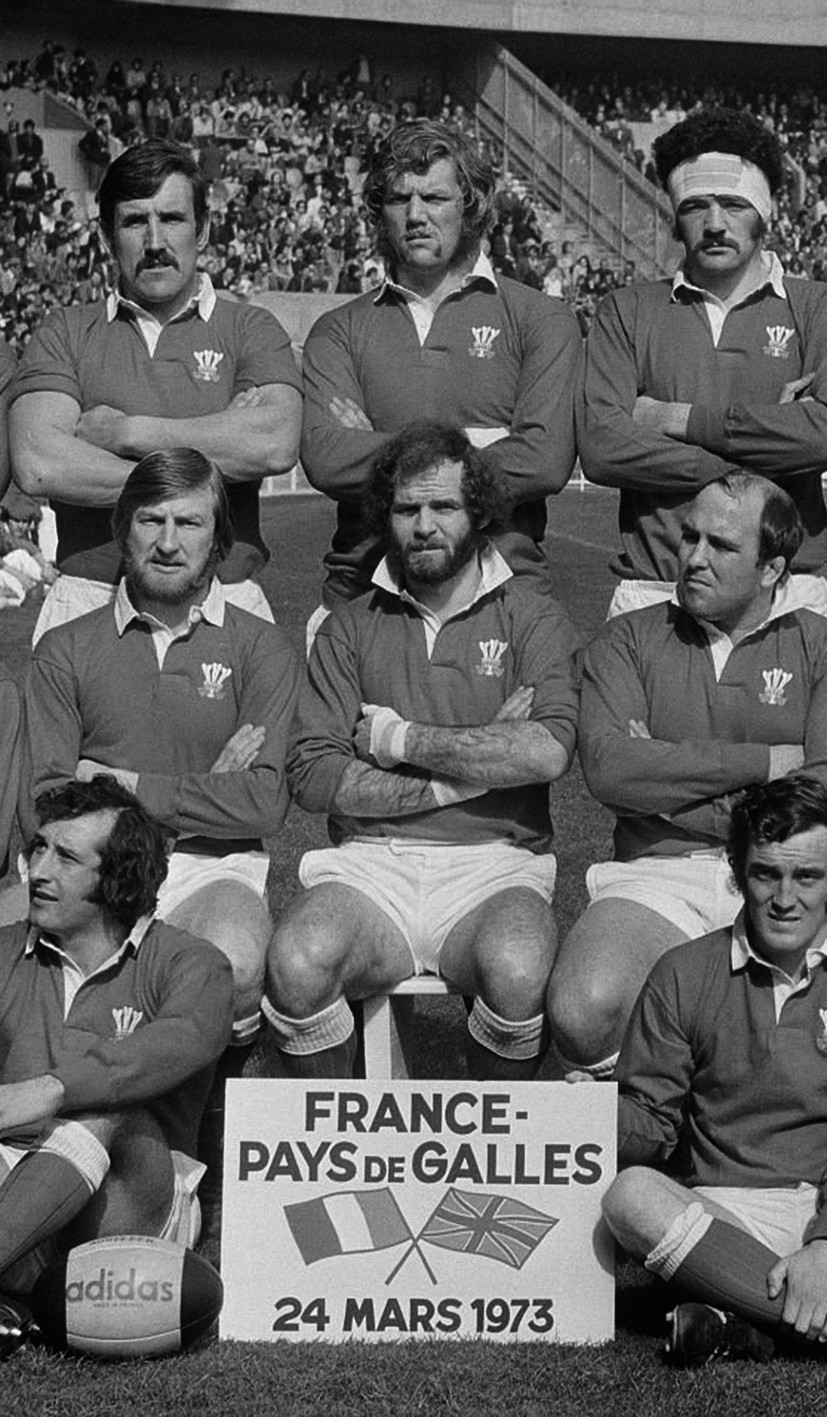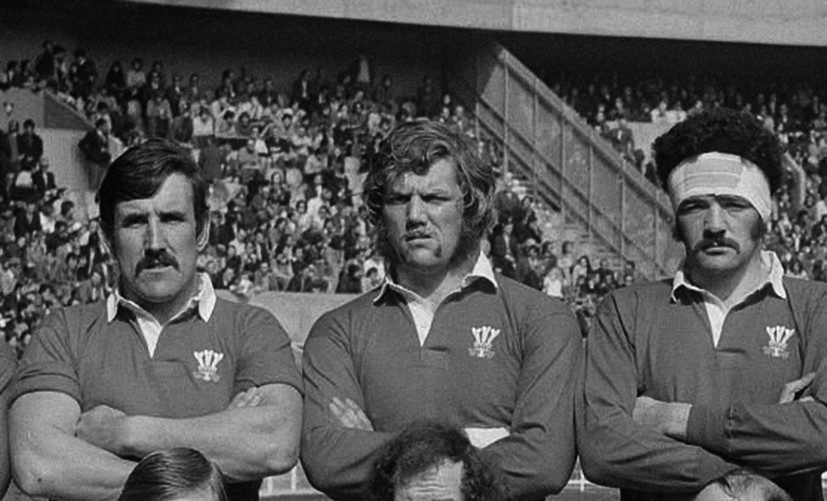PETER JACKSON
THE MAN TRULY IN THE KNOW

Even now, five decades after their time ran out, the most celebrated European team of the amateur era could teach their successors a lesson in how to sell the game.
Like a lottery ticket that kept hitting the jackpot, the Welsh Rugby Union had it all throughout the Seventies: a winning team for all seasons crammed with household names ever willing to try and talk as good a game as they played. What's more, they did so free, gratis and for nothing.
Apart from the occasional spat, they were always open and approachable, not exclusively so in a sport happy then to welcome members of the Fourth Estate into the bosom of their heaving clubhouses throughout the land.
England, Ireland, Scotland and France were equally open and approachable but with one difference. None had the cachet of the Welsh whose superstars provided two-thirds of the Lions team at the start of the 1971 series in New Zealand and almost half of the invincibles in South Africa three years later.
Thursday afternoons at Waterton Cross in Bridgend and the final Welsh training session before a Five Nations weekend were a sight to behold. Crowds rolled up in their hundreds to watch the players brush up on another seventh heaven moment 48 hours later.
At the end, whatever the weather, they stopped to sign autographs every step of the way from the pitch to the clubhouse. It was how rugby used to be and how, in our naivete, we thought it would always be: no heavies to drive a bulky wedge between players and fans, no officious employees from the Union's communications department to dissuade the players from communicating.
Why employ a public relations agency at some expense when the team did it for them free of charge? These were no ordinary players but some of the finest the game had seen, backs like Barry John, Phil Bennett, Gerald Davies, John Dawes, (Sir) Gareth Edwards, Steve Fenwick, JJ and JPR: forwards like Mervyn Davies, Terry Cobner and the Pontypool Front Row.
As amateurs, they could have refused interviews on the understandable basis of having to rush back to work. That happened, of course, but when it did, long before anyone had heard of a mobile phone, the player in question would invariably say: “Call me at home this evening and we'll have a chat then.”
Now too many hide behind their clubs' ‘prevention officers', content to say nowt unless the interview goes towards fulfilling their obligations to some multi-national sponsor.
Back in the day, some were more forthcoming than others but they all gave their time when not obliged to do so, happy more often than not to talk about the issues of the day. A decade when Wales won three Grand Slams and five Five Nations titles generated a torrent of largely positive publicity at a time when daily sales of national newspapers boasted a combined circulation of circa 15 million.
Some liked the publicity more than others as if aware that the reporter was their conduit to the fans. They did so without any paid Union official eavesdropping on the conversation ready to pounce on the merest hint of the employee going off-script.
Like the sport itself, the media landscape has changed beyond all recognition. My old newspaper colleagues from the Seventies – including JBG Thomas (Western Mail), Jim Hill (Express), Tom Lyons (Mirror) and Ron Griffiths (Evening Post) – would be turning in their graves.
To say that something resembling the Berlin Wall stands between performer and reporter now may be an exaggeration but not much of one. The barbed wire has been going up for some 20 years.
Steve Borthwick studied American politics at Bath University. Upon his introduction to the England pack, I asked him about his favourite US presidents. Before he could volunteer his thoughts about ‘the lad Lincoln' or ‘the boy Kennedy', one of the RFU press staff threw her hands up in horror: “You can't possibly ask him that.”

End of ‘interview'. It strengthened the suspicion of press officers being bullied by team managers-coaches. One, who did not work for the RFU, confided that he was warned: “If any player says anything we don't like, you will be to blame.”
It caused such anxiety that at least one country, Wales, gave their players a sheet of A4 paper instructing them how to answer questions with a mixture of platitudes and statements of the obvious designed to talk up and ‘respect' the opposition.
Gavin Henson, to his eternal credit, ignored the party line and said what he thought, regardless of the consequences, be it from Wales or the Lions. He was one of the last of a dying breed and the game became all the poorer for his falling ‘out of love' with it at what ought to have been the zenith of his career.
There are still a few shining lights. Dan Biggar has grown into the captaincy of Wales as if aware of a responsibility to promote the game, his can-do enthusiasm a marked con- trast to the sullen attitude of his predecessor, Alun Wyn Jones.
It's taken too long but other players are also realising that the game has never been in more urgent need of help. BBC's sports coverage during their main Saturday night bulletin two weeks ago did not extend to any mention of rugby union. That is not intended as a criticism of the BBC but another reason for rugby to worry about its profile. That the weekend in question had no Premier League football made it all the more worrying.
The message is getting through and about time, too, given the shocking implosion of Worcester Warriors and the on-going alarms over brain-damaged former players. Harlequins' stand-off Marcus Smith says it's time for the players ‘to lift the profile and inspire new youngsters'.
His contemporaries could do worse than take a leaf out of any Muhammad Ali biography on how to use the publicity machines to spread the word. All it needs is a one-word tweak to The Greatest's catch-phrase, from Stinging Like A Bee to a Wasp, assuming they stay in business long enough to reap the reward.
For exclusive stories and all the detailed rugby news you need, subscribe to The Rugby Paper website, digital edition, or newspaper from as little as 14p a day.




























Pingback: Check it out here